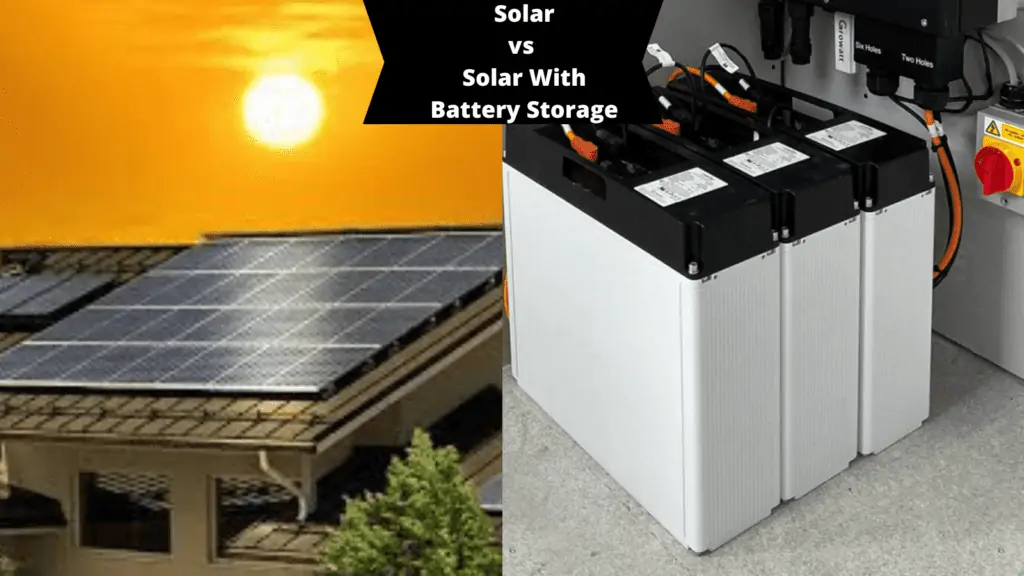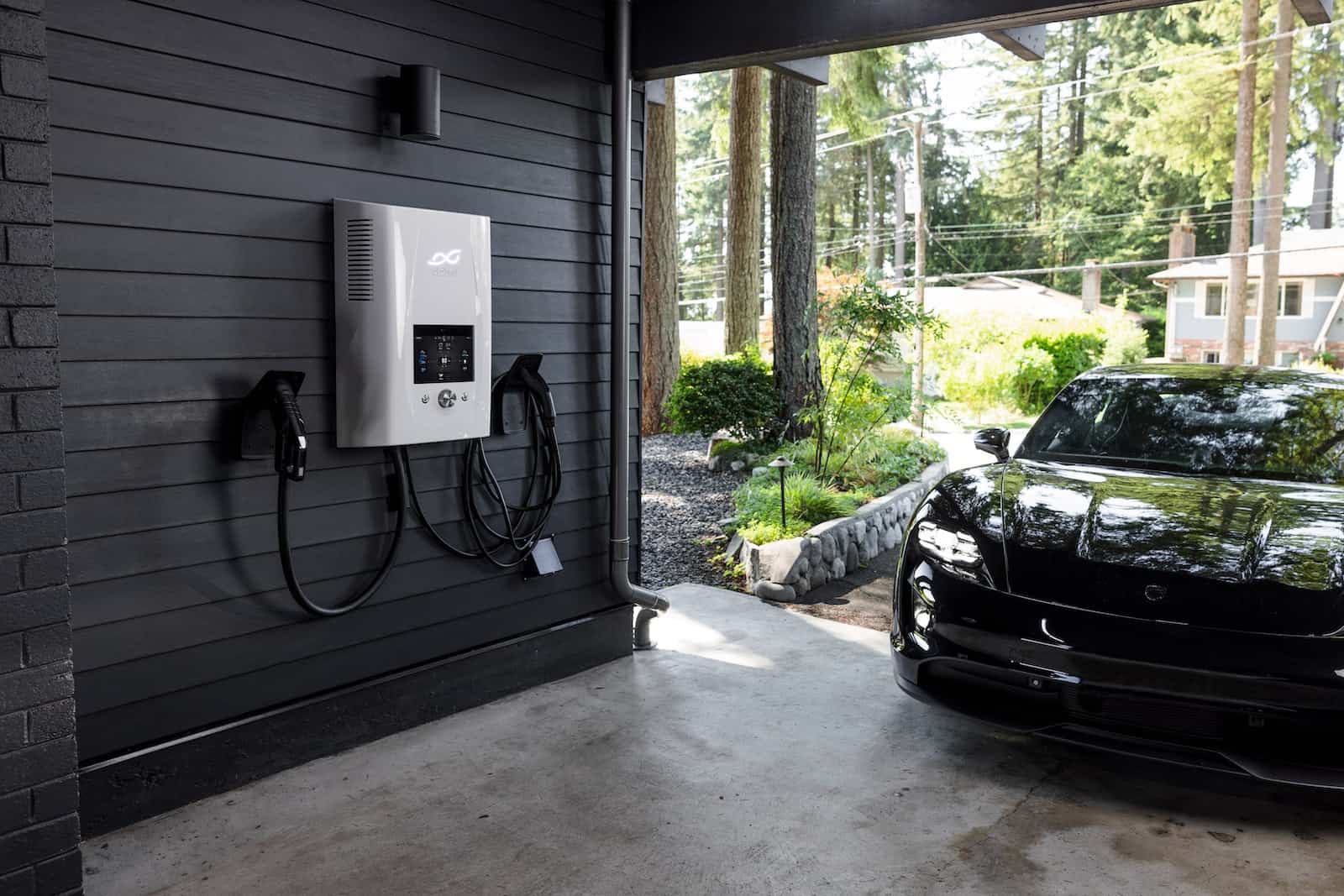If you are interested in converting to a 100% renewable energy source, then you might want to compare solar vs solar with battery storage. Solar panels are relatively inexpensive, but battery storage can help them to become more economically viable. Solar with storage helps you to shift energy use to later hours of the day, when non-solar energy is cheaper. This is important because solar is more expensive at night. Depending on your needs, you can choose solar with battery storage or without.
Contents
Costs Of Solar Battery Storage
The costs of solar battery storage vary depending on a number of factors. The capacity of the battery is a major determining factor. The higher the capacity, the more expensive the system will be. Typically, solar battery systems can store anywhere from 1.2kWh to 16kWh. NREL’s Tuesday webinar noted that the solar and storage cost benchmark covers the first half of the year, so the findings may not be as accurate next year.
Adding a battery storage system will allow you to take advantage of the fact that solar panels only provide a fraction of the electricity that you need. However, utilities charge $0.12 per kWh for power they draw from the grid. This means that if you want to feed the grid, you have to pay $0.07 more per kWh than if you were storing it in a battery. Solar battery storage systems allow you to capture the full value of excess electricity generated by solar panels.
The cost of a solar battery storage system can range from $300 to $15,000 and can range from $5,000 to nearly $15,000, depending on the system size. High quality home solar batteries will cost between $5,000 and $7,000, but don’t forget to factor in installation fees and other equipment costs. However, the cost of a solar battery storage system can easily exceed $30,000 if you choose to go for a higher quality system. There are several types of batteries, including lead-acid and lithium-ion. While lead-acid batteries are tried and true, lithium-ion batteries are more popular due to their lower cost of ownership and maintenance.
The cost of solar batteries can vary depending on the type and size of battery you choose. For example, the Aquion AHI battery is relatively cheap and can be stacked with another battery for a larger storage capacity. However, the largest battery size available within a reasonable price range will not be enough to provide all of the electricity you need. It will need to be replaced once in 6-12 months. Depending on the size of the battery, the costs of solar battery storage can range from $1000 to $5000.
The cost of a solar battery depends on a number of factors, including power rating, round-trip efficiency, and capacity. The capacity of a solar battery is the biggest determining factor, as the larger the capacity, the more expensive it will be. It can cost as much as $400 to $750 per kilowatt-hour, and a small residential solar battery can store enough power to run a few essential appliances for one to four hours.
Another deciding factor is the utility rate. Most solar panels produce their highest amount of energy during the off-peak hours, while their use is lowest during peak hours. Using a battery to store solar energy when rates are low will allow you to take advantage of these low rates and use it during peak hours. This way, you can save money on your utility bills while using less energy when rates are high. However, it is possible to find lower rates if your utility doesn’t offer net metering.
Solar Vs Solar With Battery Storage Pros & Cons
Solar panels are a great way to save electricity and money. However, many people want to be able to use the power from their solar panels at night or during cloudy days. This is where solar with battery storage comes in handy: a battery bank stores the electric generated by your panels during the day so that you can use it at night or on cloudy days!
If you have a solar system that can work without a battery, you may be good for a while, but eventually you will find that during the night or during the colder months, that having battery storage is essential.
Cost Of Solar
Solar technology costs less than many people think. Solar energy is becoming the cheapest source of electricity in many parts of the world, and it will soon be cheaper than fossil fuels in most places. The cost of a solar system depends on how much power you use and how much sun your roof gets. We also offer financing and lease options.
The cost of solar is rapidly falling and today, a new solar system can be installed for as little as $0.10 per kilowatt-hour, or kWh. This means that you can save up to 90% of your electricity bill without any subsidies or hidden costs (which are actually no longer needed). The math is pretty straightforward and we are here to help you along the way. Just choose a plan and get started.
Depending on the size of your solar panels, the cost of a solar battery storage system can range from PS1,200 to PS6,000. The smaller batteries can be stacked to create a larger storage capacity. These batteries are perfect for storing extra electricity during a blackout. Alternatively, you can purchase a smaller battery and charge it with grid energy. The cost of solar battery storage depends on how much you expect to generate from your solar panels.
Solar battery storage will cost you less money than conventional battery storage. If your solar panel system generates excess energy during the day, you can sell this back to the grid, which reduces the amount of power you use from the main grid. The extra energy can also be applied to your evening power bill. This is one way of making solar energy affordable for virtually everyone. So, what are you waiting for? Consider solar battery storage today. It’s a great way to generate more energy and save money.
Among the popular solar batteries, the Tesla Powerwall has a price tag of $7500 before installation. It has a capacity of 13.5 kWh, a depth of discharge of 100 percent, and a round-trip efficiency of 90%. That means ninety percent of the energy you generate is put back into the battery, and the rest is used for the battery’s function. Its warranty lasts for ten years and has an average lifespan of seven to 10 years.
Before purchasing a solar battery storage system, analyze your energy consumption from the past twelve to twenty-four months. Review your electrical bills, and look for days with the highest energy use. You can use a load calculator to determine your anticipated energy usage. In this way, you can compare the solar battery storage price with the cost of utility-supplied energy. By comparing the two, you will be able to determine how much you’ll save with a solar battery system.
Solar Vs Solar With Battery Storage Conclusion
In our conclusion, we see that solar vs solar with battery storage offers the best return on investment, a lower total cost of ownership and energy savings. We also see that installing solar panels and replacing electricity with powering batteries are well suited for off-grid applications. Solar may work without batteries, but without a storage unit, during low output periods, you may find yourself without power.


